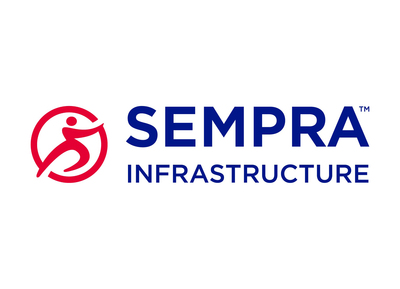Sempra Infrastructure and Williams Announce Preliminary Agreements for LNG Offtake, Gas Supply, and Associated Pipeline Projects
Sempra Infrastructure has signed a heads of agreement (HOA) with Williams for LNG offtake and development of gas pipelines to enhance U.S. natural gas market connectivity. The agreement includes negotiating long-term contracts for roughly 3 million tonnes per annum (Mtpa) of LNG from Port Arthur and Cameron LNG Phase 2 projects. Additionally, a partnership to manage the 2.35 Bcfd Cameron Interstate Pipeline is anticipated. This allows Sempra to advance its LNG initiatives amid growing global energy demands. However, the HOA remains non-binding and subject to various risks.
- HOA for 20-year contracts to supply 3 Mtpa LNG boosts Sempra's growth.
- Strategic partnership with Williams enhances pipeline operations.
- Potential for Port Arthur LNG to become a leading North American export terminal.
- The HOA is non-binding and may not lead to final agreements.
- Multiple risks exist, including regulatory approvals and final investment decisions.
Insights
Analyzing...
HOUSTON, Nov. 15, 2022 /PRNewswire/ -- Sempra Infrastructure, a subsidiary of Sempra (NYSE: SRE) (BMV: SRE), today announced it has entered into a heads of agreement (HOA) with Williams (NYSE: WMB) for the offtake of liquefied natural gas (LNG) and development of associated natural gas pipeline projects to further connect abundant U.S. natural gas supplies in the Gulf Coast region to markets around the world.
The HOA contemplates negotiation and finalization of two 20-year long-term sale and purchase agreements for approximately 3 million tonnes per annum (Mtpa) of LNG in the aggregate from the Port Arthur LNG project under development in Jefferson County, Texas, and the Cameron LNG Phase 2 project under development in Hackberry, Louisiana. The HOA also contemplates the negotiation of a separate natural gas sales agreement for approximately 0.5 billion cubic feet per day (Bcfd) to be delivered in the Gillis, Louisiana area, as feed gas supply for the referenced LNG projects.
In addition, Sempra Infrastructure and Williams anticipate forming a strategic joint venture to own, expand and operate the existing 2.35 Bcfd Cameron Interstate Pipeline that is expected to deliver natural gas to the Cameron LNG Phase 2 project under development, as well as the proposed Port Arthur Pipeline Louisiana Connector that is expected to deliver natural gas to the proposed Port Arthur LNG facility.
"We are excited to continue advancing our U.S. Gulf Coast LNG and associated pipeline projects as we work to help satisfy a growing global demand for cleaner, more reliable energy sources," said Justin Bird, CEO of Sempra Infrastructure. "We look forward to advancing our relationship with Williams, a like-minded company that shares our commitment to building a future of energy abundance, affordability and security."
"Williams is pleased to pursue this strategic transaction with Sempra Infrastructure. We see it as an opportunity to combine our capabilities along the natural gas value chain and increase the delivery of low-carbon, affordable and reliable natural gas from the wellhead to the growing international market," said Alan Armstrong, president and CEO of Williams. "Facilitating the delivery of next generation natural gas to ease energy constraints at home and overseas, while also helping to meet domestic and global climate goals, is central to our natural gas focused strategy, and we look forward to being well aligned with Sempra Infrastructure's unique capabilities and competitive advantages in the LNG infrastructure space."
Port Arthur LNG has the potential to become one of the largest LNG export facilities in North America. Phase 1 of Port Arthur LNG is permitted and expected to include two liquefaction trains and LNG storage tanks, as well as associated facilities capable of producing, under optimal conditions, up to approximately 13.5 Mtpa of LNG. Sempra Infrastructure recently announced it is expecting to take a final investment decision for Phase 1 of the liquefaction project in the first quarter of 2023. Additionally, the company announced last month that it had amended and restated its engineering, procurement and construction contract with Bechtel Energy for Phase 1. Port Arthur LNG Phase 2 is being developed as a similarly sized project located adjacent to the Phase 1 project.
The Cameron LNG Phase 2 project is expected to include a single LNG train with a maximum production capacity of 6.75 Mtpa of LNG, as well as debottlenecking of the existing three LNG trains. The project is expected to include certain design enhancements resulting in a more cost-effective and efficient facility, while also reducing overall greenhouse gas emissions.
The referenced HOA is a preliminary, non-binding arrangement, and the development of Sempra Infrastructure's LNG and associated pipeline projects remains subject to a number of risks and uncertainties, including reaching definitive agreements, securing all necessary permits, signing engineering and construction contracts where applicable, obtaining financing and reaching a final investment decision for each project.
About Sempra Infrastructure
Sempra Infrastructure delivers energy for a better world. Through the combined strength of its assets in North America, the company is dedicated to enabling cleaner energy for its customers. With a continued focus on sustainability, innovation, world-class safety, championing people, resilient operations and social responsibility, its more than 2,000 employees develop, build and operate clean power, energy networks and LNG and net-zero solutions, that are expected to play a crucial role in the energy systems of the future. For more information about Sempra Infrastructure, please visit www.SempraInfrastructure.com and Twitter.
About Williams
As the world demands reliable, low-cost, low-carbon energy, Williams (NYSE: WMB) will be there with the best transport, storage and delivery solutions to reliably fuel the clean energy economy. Headquartered in Tulsa, Oklahoma, Williams is an industry-leading, investment grade C-Corp with operations across the natural gas value chain including gathering, processing, interstate transportation, storage, wholesale marketing and trading of natural gas and natural gas liquids. With major positions in top U.S. supply basins, Williams connects the best supplies with the growing demand for clean energy. Williams owns and operates more than 30,000 miles of pipelines system wide – including Transco, the nation's largest volume and fastest growing pipeline – and handles approximately 30 percent of the natural gas in the United States that is used every day for clean-power generation, heating and industrial use. Learn how the company is leveraging its nationwide footprint to incorporate clean hydrogen, next generation gas and other innovations at www.williams.com.
This press release contains statements that constitute forward-looking statements within the meaning of the Private Securities Litigation Reform Act of 1995. Forward-looking statements are based on assumptions with respect to the future, involve risks and uncertainties, and are not guarantees. Future results may differ materially from those expressed or implied in any forward-looking statement. These forward-looking statements represent our estimates and assumptions only as of the date of this press release. We assume no obligation to update or revise any forward-looking statement as a result of new information, future events or other factors.
In this press release, forward-looking statements can be identified by words such as "believes," "expects," "intends," "anticipates," "contemplates," "plans," "estimates," "projects," "forecasts," "should," "could," "would," "will," "confident," "may," "can," "potential," "possible," "proposed," "in process," "construct," "develop," "opportunity," "initiative," "target," "outlook," "optimistic," "maintain," "continue," "progress," "advance," "goal," "aim," "commit," or similar expressions, or when we discuss our guidance, priorities, strategy, goals, vision, mission, opportunities, projections, intentions or expectations.
Factors, among others, that could cause actual results and events to differ materially from those expressed or implied in any forward-looking statement include risks and uncertainties relating to: decisions, investigations, regulations, issuances or revocations of permits or other authorizations, and other actions by (i) the U.S. Department of Energy, Comisión Reguladora de Energía, U.S. Federal Energy Regulatory Commission and other governmental and regulatory bodies and (ii) the U.S., Mexico and states, counties, cities and other jurisdictions therein and in other countries in which we do business; the success of business development efforts, construction projects and acquisitions and divestitures, including risks in (i) being able to make a final investment decision, (ii) completing construction projects or other transactions on schedule and budget, (iii) realizing anticipated benefits from any of these efforts if completed, and (iv) obtaining the consent or approval of partners or other third parties, including governmental and regulatory bodies; civil and criminal litigation, regulatory inquiries, investigations, arbitrations, property disputes and other proceedings; changes to laws and regulations, including certain of Mexico's laws and rules that impact energy supplier permitting, energy contract rates, the electricity industry generally and the import, export, transport and storage of hydrocarbons; cybersecurity threats, including by state and state-sponsored actors, by ransomware attacks on our systems or the systems of third-parties with which we conduct business, including to the energy grid or other energy infrastructure, all of which have become more pronounced due to recent geopolitical events, such as the war in Ukraine; failure of foreign governments, state-owned entities and our counterparties to honor their contracts and commitments; our ability to borrow money on favorable terms or otherwise and meet our debt service obligations, including due to (i) actions by credit rating agencies to downgrade our credit ratings or place those ratings on negative outlook and (ii) rising interest rates and inflation; the impact on our ability to pass through any higher costs to current and future customers due to volatility in inflation, interest and foreign currency exchange rates and commodity prices and our ability to effectively hedge these risks; the impact of energy and climate policies, laws, rules and disclosures, as well as related goals and actions of companies in our industry, including actions to reduce or eliminate reliance on natural gas and the risk of nonrecovery for stranded assets; the pace of the development and adoption of new technologies in the energy sector, including those designed to support governmental and private party energy and climate goals, and our ability to efficiently incorporate them into our business; weather, natural disasters, pandemics, accidents, equipment failures, explosions, acts of terrorism, information system outages or other events that disrupt our operations, damage our facilities or systems, cause the release of harmful materials, cause fires or subject us to liability for damages, fines and penalties, some of which may be disputed or not covered by insurers or may impact our ability to obtain satisfactory levels of affordable insurance; the availability of natural gas; the impact of the COVID-19 pandemic on capital projects, regulatory approvals and the execution of our operations; changes in tax and trade policies, laws and regulations, including tariffs, revisions to international trade agreements and sanctions, such as those that have been imposed and that may be imposed in the future in connection with the war in Ukraine, which may increase our costs, reduce our competitiveness, impact our ability to do business with certain counterparties, or impair our ability to resolve trade disputes; and other uncertainties, some of which are difficult to predict and beyond our control.
These risks and uncertainties are further discussed in the reports that Sempra has filed with the U.S. Securities and Exchange Commission (SEC). These reports are available through the EDGAR system free-of-charge on the SEC's website, www.sec.gov, and on Sempra's website, www.sempra.com. Investors should not rely unduly on any forward-looking statements.
Sempra Infrastructure is not the same company as San Diego Gas & Electric Company or Southern California Gas Company, and neither Sempra Infrastructure nor any of its subsidiaries is regulated by the California Public Utilities Commission.
![]() View original content to download multimedia:https://www.prnewswire.com/news-releases/sempra-infrastructure-and-williams-announce-preliminary-agreements-for-lng-offtake-gas-supply-and-associated-pipeline-projects-301677858.html
View original content to download multimedia:https://www.prnewswire.com/news-releases/sempra-infrastructure-and-williams-announce-preliminary-agreements-for-lng-offtake-gas-supply-and-associated-pipeline-projects-301677858.html
SOURCE Sempra North American Infrastructure







